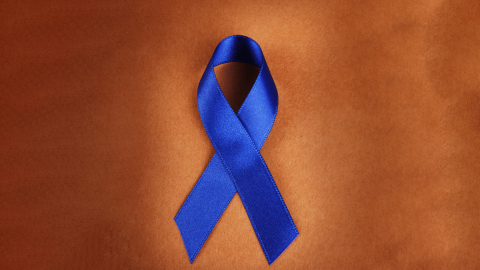Economic Hardship, Divorce and Children in the Middle
According to Unified Lawyers worldwide, Canada is ranked #10 in terms of the top ten countries for divorce. Statistics go on to clarify Canada’s divorce rate at 38%. Read more at https://www.unifiedlawyers.com.au/blog/global-divorce-rates-statistics/. This is an interesting read. It also sets out the criteria for Divorce in Canada.
While 10th may not seem so alarming, we need to bear in mind this is a “worldwide” ratio comparison. We need to pay heed to the notion of how many countries there truly are in the world. When you revisit it from this perspective the “lens” changes and you can now see that Canada’s divorce rate, when compared worldwide, is rather high. The blog goes on to share the “Global Divorce Rate is Rising”, generally, as well. Yes, COVID-19 is playing into the rise in domestic abuse statistics worldwide. That includes Canada. Of greatest concern, however, is how does Divorce and Domestic Abuse or “Domestic Survivorship”, effect Canada’s children particularly when it comes to the economic hardship affiliated with it?
Parents are often unaware of how they can reduce emotional and psychological trauma to their children when it comes to the economic hardship aspect of Divorce and/or Domestic and Economic Abuse. Following are insights and constructive strategies for single parenting, generally, and how to keep your children out of the middle of adult financial issues:
Facts:
- It takes a child 1 to 1 ½ years to process a divorce
- It takes an adult 2 to 2 ½ years to process a divorce.
- Which means your children can often process this psychosocial stressor before you can.
- Admittedly some children and adults are never able to get over a Divorce.
- Frankly, recovery time may vary when it comes to Domestic Abuse Survivorship.
- Children are like “scanners” when it comes to sensing parental anxiety. They will handle their perception regarding Divorce and domestic abuse situations based upon how you handle it. In other words, too much anxiety within you can make your child anxious, too.
- If you are stable, they will follow. If you waiver, they will too.
- It goes without saying, however, that yes, Divorce and Domestic and Economic Abuse Survivorship situations are extremely traumatic. After all, you are working through the “death of a relationship”. Concerns about finances and how you are going to make it are also highly stressful factors. It can be difficult not to “overshare” financial concerns without realizing what you are doing.

“Don’ts” – Money Problems and Quizzing your Child.
- Children feel a great sense of divided loyalty to both parents no matter who the other parent is.
- Do not use your child to carry angry messages about money issues back and forth to your ex-partner. This puts an uncomfortable pressure on the child and saddles them with adult responsibility.
- Do not “nit-pick” about support payments. That can really affect a child. Long term, it may make the child feel guilty about asking for something because there are financial issues between you.
- Don’t saddle the child with undue concerns about financial stability when the intent is to simply take a “jab” at the ex.
- Keep focused on what is more important. Knowing your child is going to enjoy doing an activity is well worth its “financial” reward versus arguing about it or being resentful about extra monies spent.
- Let go of the anger of always being the one who is to come up with the money and/or anger about how you were and/are denied finances from a former partner. Instead, reach out to local agencies and shelters. This will teach your child constructive life problem solving skills, as well, which will help your child transition and not worry about money, constantly.
The post-adjustments to Divorce and domestic and economic abuse are already tenuous enough for children. While yes, you cannot control the other parent, you can minimize damage and/or stress to your child by your not discussing financial concerns, woes, or fears. Instead, seek out family members or other resources to discuss these issues with.
“Do’s” – Helping your Children and Yourself Through Economic Hardship:
- Do reach out to local agencies, shelters, and free legal help lines if you need Divorce and/or Domestic Abuse Survivor Rights Information.
- Visit the Canadian Center for Women’s Empowerment website for information about free support groups and webinars about financial literacy, wellness and breaking the cycle of Economic Abuse.
- Involve your children in outside activities. That could range from hiking to sports to just being outside and enjoying nature, and relaxing.
- Investigate low budget entertainment such as trips to the library, parks, museums. Things that do not cost too much but are interactive.
- Talk with your child frequently about the improvements you have seen in not only them, but in the entire family dynamic. Take time out to celebrate your new lives.
- Recognize whether it is a Divorce or a forced departure you will now be able to have peace and tranquility in your own life and space. Enjoy that peace by spending time with your child(ren). You and your child(ren) deserve that!
For those of you unfamiliar with the Federal Child Support Guidelines Canada takes a federal stance about the issue of financial “Undue Hardship” when it comes to children and Divorce: https://www.justice.gc.ca/eng/rp-pr/fl-lf/child-enfant/rp/v2/v2_4.html. The Act also speaks to the Legal Duty to Support a Child(ren) and is a great resource regarding legal questions pertaining to support and your child(ren).
Additional Resources:
Assaulted Women’s Help Call line – A 24-hour helpline in the province of Ontario with attendant referrals and services.
Toll Free 1.866.863.0511, Toll Free TTY 1.866.863.7868
Text to: #SAFE (#7233)
Services: Crisis counselling, Emotional support, Safety planning, Exploring Options.
Phone interpreting available in up to 240+ languages! Referrals are for Shelters, Sexual Assault Centres, Housing options, Legal services, Counsellors/Therapists, Support Groups, Culturally appropriate services, Local Community Services and LGBTQ+.
KIDS Help Phone Line: For over 30 years, Kids Help Phone has been Canada’s only 24/7, national support service for youth. We offer free professional counselling, information and referrals and volunteer-led, text-based support to young people in both English and French.
The Law Society of Ontario – Offers a 30-minute free legal consultation.
A crisis line is available Monday through Friday 9 a.m. to 5:00 p.m. for people unable to access online services, those in custody or shelter, or in a remote community without internet access. LSRS Toll Free Crisis Line: 1-855-947-5255, www.findlegalhelp.ca
Family Violence Resources and Services by Province:
https://www.canada.ca/en/public-health/services/health-promotion/stop-family-violence/services.html
Canadian Center for Women’s Empowerment ccfwe.org
CCFWE empowers economic abuse survivors across Canada through programs and resources focused on wellness and self-care, education and awareness, economic empowerment and advocacy. For more information about CCFWE’s weekly virtual support group and online group therapy, email: [email protected].
“You are braver than you believe, and stronger than you seem, and smarter than you think.” – Christopher Robin.
By Corinne Isaacs-Frontiero Social Justice Writer, CCFWE









